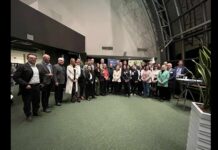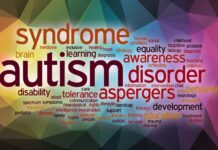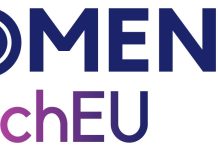The chair of this working group is Prof.Dr.Vladimir Trajkovski (TBC)

He is professor in Autism Spectrum Disorders, Human Genetics, Physiology and Functional Anatomy, and Medical Aspects of Disability at the University of “Ss. Cyril and Methodius”, Faculty of Philosophy, Institute of Special Education and Rehabilitation. Founder and president of Macedonian Scientific Society for Autism (http://mssa.org.mk/). He has published widely on autism spectrum disorders and he was editor-in-chief of Journal of Special Education and Rehabilitation since November 2008 until September 2017. Since 2018, he is Editor-in-chief of the Journal for ReAttach Therapy and Developmental Diversities (https://jrtdd.com). His research interests are genetic and physiological aspects of autism spectrum disorders, but he has also published in the fields of human genetics and medical aspects of disability. He is on the list of DAN doctors in USA. he has been actively involved in the organization, management and promotion of numerous trainings and workshops for professionals working in the field of disability. He participated in more than 100 seminars, congresses, symposia and conferences at home and abroad. His most important works is worth mentioning: “Manual of Human Genetics” (2003), monograph “Autism” (2004), textbooks “Human genetics” (2005), “Medical Basis of Disability (2008)” Physiology and Functional Anatomy (2009), “Autism and Pervasive Developmental Disorders (2011), “Human Genetics and Physiology” (2018), “Supporting social skills and positive parenting: Manual for parents of children with autism spectrum conditions and professionals in
their circle of support” (2020). He was co-author of e-book entitled: “Autism: is there a place for ReAttach therapy” published in Italy (2018). He is an active member of the Autism Europe, member of the European Association of Service Providers for People with disabilities, member of the International Association for the Scientific Study of Intellectual Disabilities. He is member of editorial boards for Insights on Learning Disabilities, Bulgarian Journal of Communication Disorders, Belgrade Special Education School, The Open Access Journal of Science and Technology, HUMAN, etc. He takes a part in 18 domestic and mainly international EU projects. He published around 105 articles in domestic and international peer reviewed scientific and academic journals.
Smart specialization is a strategy that regions and countries use to focus their resources and efforts on specific areas of research, innovation, and economic development where they have a competitive advantage. When considering smart specialization for Autism Spectrum Disorders (ASD), Human Genetics, and Medical Aspects of Disability, it’s important to tailor the strategy to the strengths and capabilities of the region. Here’s how such a strategy will be structured:
- Assessment of Regional Assets:
- Identify and evaluate the region’s existing strengths, expertise, research institutions, and infrastructure related to ASD, Human Genetics, and Medical Aspects of Disability. This assessment will help determine where the region has a competitive advantage.
- Stakeholder Engagement:
- Engage key stakeholders, including universities, research centers, healthcare providers, patient advocacy groups, and industry partners, in the development of the smart specialization strategy. Collaboration is crucial for success.
- Focus on Specific Areas:
- Select specific areas or niches within ASD, Human Genetics, and Medical Aspects of Disability where the region can excel. This could involve areas like genetic research, personalized medicine, diagnostic tools, or interventions for ASD.
- Research and Innovation Clusters:
- Create research and innovation clusters around the chosen areas to foster collaboration, knowledge sharing, and interdisciplinary research.
- Investment in Research and Education:
- Allocate resources for research and development projects, funding for education and training programs, and initiatives to attract and retain top talent in these fields.
- Technology Transfer and Commercialization:
- Promote the transfer of research findings and innovations to the private sector for commercialization. Encourage startups and industry partnerships to develop marketable products and solutions.
- Patient-Centered Approaches:
- Prioritize patient-centered research and approaches that aim to improve the quality of life, diagnosis, treatment, and inclusion of individuals with ASD and disabilities.
- International Collaboration:
- Establish partnerships and collaborations with international organizations, universities, and research institutions to access global expertise, share data, and participate in international research projects.
- Regulatory Support:
- Work with regulatory authorities to create a supportive regulatory environment that facilitates research and innovation in healthcare, genetics, and disability-related fields.
- Data Privacy and Security:
- Develop robust data privacy and security protocols to protect sensitive health and genetic information while enabling data sharing for research purposes.
- Promotion and Awareness:
- Raise awareness of the region’s smart specialization strategy and its potential benefits for the community, healthcare, and the economy.
- Monitoring and Evaluation:
- Implement a system for monitoring and evaluating the progress and impact of the smart specialization strategy, allowing for adjustments and improvements as necessary.























